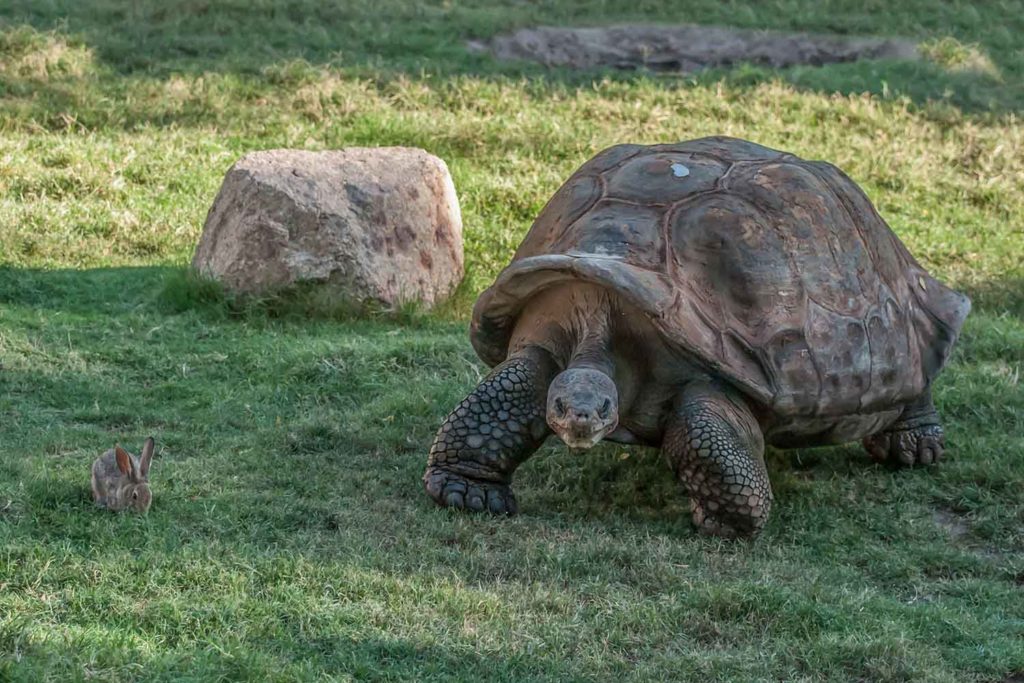First Person
Student Notebook: The Seven Sins of Graduate School

You got into graduate school! You’ve probably written more than a fair share of applications, talked with a few faculty members and graduate students, and even visited a few campuses. But what now? If you’re like me, you might find yourself in a liminal space: between undergrad/gap year and the start of graduate school, mostly clueless about the road ahead. What if there were a few practices you could lean into and others you could avoid that would make your journey a little smoother? I have compiled seven paradigmatic sins that many beginner graduate students commit—and my suggestions for how to learn from them.
1. Rugged individualism

“I made it!”
Not necessarily. Depending on where you’re coming from, you may have been led to believe that your achievements are your own. That you solely should be celebrated for a good grade or passing a test. However, in graduate school, and in most learning situations (I’d argue), you’re not solely to congratulate. Without structure, scaffolding, and the wisdom and kindness of learned others, you probably wouldn’t have made it.
In my first year of graduate school, I quickly learned that the effort that gets put into a project is most often collective. Many graduate students are part of a lab that investigates a set of questions or topics relevant to their discipline. Advisers usually direct and guide the flow of collaboration. And you might have undergraduate research assistants whom you mentor and who in turn help you organize ideas and run projects. Success in graduate school depends on the fruitful efforts of you and your team. As you advance on your path to mastery, don’t forget to acknowledge the work and effort of others.
2. Thin skin
The second sin is having thin skin.
The reverse of this also holds true. In graduate school, don’t internalize sole responsibility for failures. In most cases it isn’t solely your fault. Sure, you’ve no doubt contributed, but by no means should you carry with you the full fault of failure. Oftentimes the systems in which we are students may have imperfections, such as vague departmental policies regarding program milestones or potential advisor–advisee miscommunications. These structural issues reflect in your individual actions, but you yourself are certainly not the single cause. Not internalizing failure is an important skill to develop because of how commonplace mistakes and failures are in graduate school. Reflecting on errors as a necessary part of learning will allow you to grow into a better researcher, scholar, teacher, friend, and colleague.
Of course, facing up to the limitations of our own capabilities can be painful. You’ll certainly feel this as you progress in graduate school, where the most validation you’ll get will likely be what you generate for yourself. Remember, we cannot choose not to worship, we can only choose what we worship. Don’t fall into a trap of worshiping the academy, or your advisor, or the degree itself. Worshiping these is hopeless. You’ll end up sad, betrayed, angry, and resentful. Instead, worship something transcendent to the academy. Understand what the academy stands for and realize that you can stand with it as we all reach for some of the more abstract collective values: knowledge, societal justice, love, kindness, learning, and teaching.
3. Getting ahead of yourself
The tree of knowledge is constantly growing, so be the turtle and take your time.
Human collective knowledge is increasing at a rate much slower than the realm of the knowable. In fact, the universe as we know it is increasing at 150,000 miles per hour, while we earthlings tread along at 67,000 mph (Hadhazy, 2019; Herman, 1998). I’m not a mathematician, but it seems like we earthlings are behind.
And it’s okay! One reason graduate school exists is to remind us that there are still places to be visited and questions to be both asked and answered. By dedicating ourselves to the study of a discipline, we might (with the right support) contribute to the knowledge which already exists.
So, what are we to do about a constantly growing tree of knowledge? Read the Æsop fable titled The Hare & the Tortoise and keep reminding yourself, like I do, that graduate school is a marathon, not a sprint; slow and steady progress wins the race.
4. Ruling out teaching
“I’m not teaching, period.”
Among the many responsibilities that you’ll have as a graduate student, you might get the privilege to teach. I have found teaching to be one of the more rewarding aspects of graduate school. Not only because you’re in some instances paid to inspire young minds, but also because teaching can provide a portal into what you know, don’t know, and could know better. At the very least, preparing to teach something mentally organizes that material and enhances learning (Nestojko et al., 2014). If you’re given the opportunity, I suggest that you teach until you’ve organized your psyche—and then keep teaching to organize the psyche of others.
5. Judging yourself
“I’m a bad graduate student.”
Friendships, laundry, eating, sleeping, romance, watching Netflix—these are sometimes seen as at odds with being a “good” graduate student. Allow me to pop that bubble: Your life outside of academia will sustain your mental health and support you in the many high-stakes responsibilities that you’ve been assigned. Don’t hate the precious time you have away from the academy. Instead, lean into these things, enjoy being human, savor it before it vanishes. The everyday of our lives is not an obstacle to our success. I believe that it’s the very mundane things about our lives that actually separate us from other animals. After all, I’ve never seen a monkey watching The Notebook and eating ice cream after a stressful day. Have you?
Likewise, don’t think of yourself using “good” or “bad” value judgments. They’re not useful for changing behavior to align ourselves with an ideal. Besides, being the heuristically driven biological machines we are, we often associate the ideal “good” with perfection, which in my dictionary means impossible. Instead of “good” and “bad,” look at your setbacks as a necessary byproduct of growth. A rough presentation can be an opportunity to hone a skill, a nervous breakdown a sign to slow down, and a tough day a reminder that you’re giving your best.
6. Always saying yes
“Sure, I’ll do it.”
If you’re not careful, graduate school can become your entire life. One slippery slope to this reality is to say “yes” to it all: the committee work, the late hours, the conferences, the meetings, the teaching, the learning, and, on top of that, all the little “yeses” such as gatherings and community service. Trust me, I should know! If you’ve already committed to too much, it’s okay to say “I cannot” sometimes. Prioritize the things that help you grow as a person and member of a collective, and don’t forget about the hare and tortoise: Slow and steady wins the race.
7. Going at it alone
You’re not alone!
If no one else, I’m here. Like thousands of other graduate students who are your peers, I feel the all-too-real pain of graduate school. Countless students and teachers have been through this and have persevered through difficult times. And guess what? YOU CAN TOO.
See to it that your addiction to learning—and that’s really what graduate school enables—is fed with a diet of healthy opposition. Keep reminding yourself that your achievements and failures are not your own to carry, that you’re stronger than you think, to be the slow and steady turtle, to teach and be taught, to lean into the mundane (you’re not a bad grad student), to say “no” sometimes, and, lastly, that you’re never alone.
Acknowledgments
Dr. Jeremy, Dr. Richard, Dr. Anne, Prof. Fink, and family—thank you for your unending love and support.
Related content we think you’ll enjoy
-

Student Notebook: Clinical Psychology Graduate Student Adaptation—Living and Learning
Mariana Furtado explores how unhealthy competition among students can shape their graduate-school experience and affect their mental health.
-

Back Page: Driven From Distractions
Lotte van Dillen, of Leiden University, studies the role of affect in consumption, financial decision-making, and judgment, especially under trying circumstances.
-

Student Notebook: 7 Tips for Being an Effective Graduate Student Mentor
Given the significance of mentoring and the lack of structured training on it, Kaley Davis gives a list of seven mentoring tips specifically geared toward graduate students.
Student Notebook serves as a forum in which APS Student Caucus members communicate their ideas, suggestions, and experiences. Read other Student Notebook columns here, and learn about the benefits of Student Membership.
Interested in submitting a Student Notebook article of your own? Learn more and indicate your interest by clicking here (logged-in APS members only).
Feedback on this article? Email [email protected] or login to comment. Interested in writing for us? Read our contributor guidelines.
References
Æsop (640 BCE) & Caxton, W. (1484). The Aesop for children: with pictures by Milo Winter. Library of Congress. https://read.gov/aesop/025.html
Herman, R. (1998, October 26). How fast is the earth moving? Scientific American. https://www.scientificamerican.com/article/how-fast-is-the-earth-mov/
Hadhazy, A. (2019, July 16) How fast is the universe expanding? The Kavli Foundation. https://kavlifoundation.org/news/how-fast-universe-expanding
Nestojko, J. F., Bui, D. C., Kornell, N., & Bjork, E. L. (2014). Expecting to teach enhances learning and organization of knowledge in free recall of text passages. Memory & Cognition, 42(7), 1038–1048. https://doi.org/10.3758/s13421-014-0416-z





APS regularly opens certain online articles for discussion on our website. Effective February 2021, you must be a logged-in APS member to post comments. By posting a comment, you agree to our Community Guidelines and the display of your profile information, including your name and affiliation. Any opinions, findings, conclusions, or recommendations present in article comments are those of the writers and do not necessarily reflect the views of APS or the article’s author. For more information, please see our Community Guidelines.
Please login with your APS account to comment.